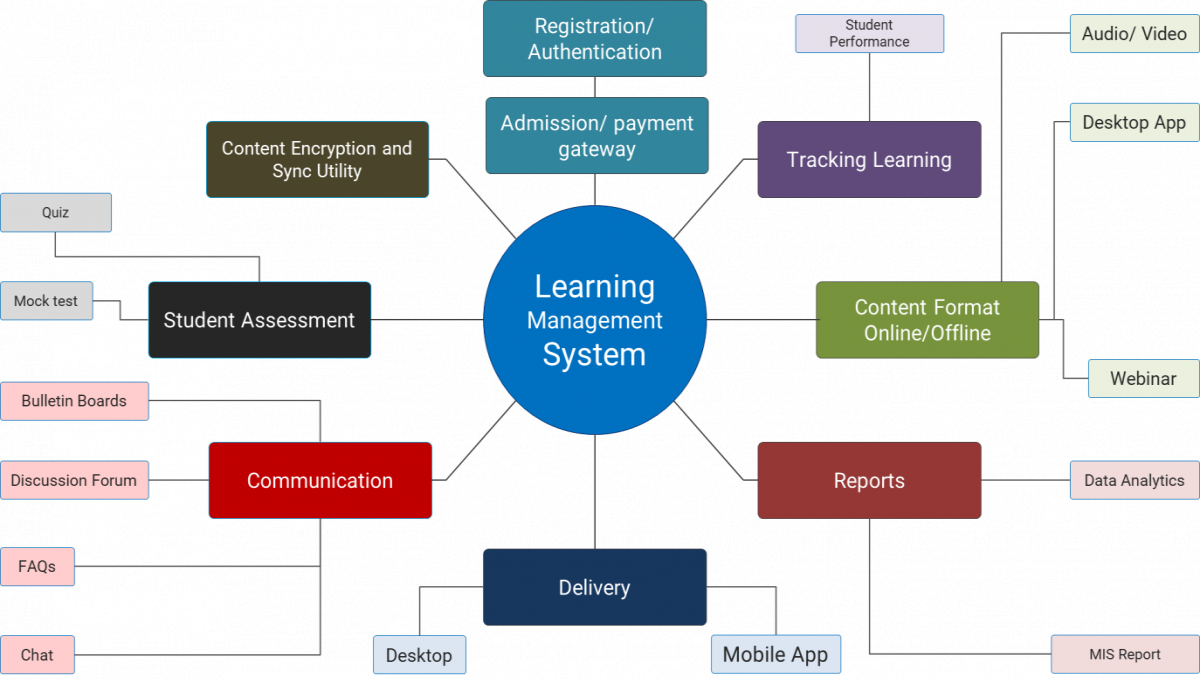The Ultimate Overview to Choosing the Right Learning Management System
Choosing an appropriate Knowing Management System (LMS) is a pivotal decision that can substantially impact instructional performance and overall business goals. The nuances of these considerations elevate important questions that merit exploration, specifically as the landscape of digital learning proceeds to evolve.
Understanding Understanding Administration Solution
In the context of contemporary education and training, a Knowing Monitoring System (LMS) works as an important tool for providing, tracking, and managing training web content. An LMS facilitates the company of instructional resources, making it possible for institutions and organizations to create a central hub for learning materials. This system sustains numerous discovering techniques, including on the internet training courses, combined knowing, and typical class setups.
LMS platforms are developed to improve the learning experience by giving a structured environment where learners can access web content at their ease. They commonly include functions such as evaluations, progress tracking, and reporting devices, which assist instructors keep an eye on trainee performance and involvement. Furthermore, LMSs can be personalized to meet the details needs of different learners and organizations, permitting customized educational experiences.
The integration of an LMS right into educational settings also advertises cooperation amongst learners and trainers, cultivating a feeling of community with discussion online forums and group jobs. As organizations progressively acknowledge the importance of continuous discovering and advancement, the duty of LMSs in helping with effective training services proceeds to expand, positioning them as essential possessions in the academic landscape.
Secret Functions to Consider
When selecting a Knowing Monitoring System (LMS), numerous crucial features necessitate cautious consideration to make certain the system straightens with educational goals. User-friendliness is necessary; an uncomplicated user interface facilitates simplicity of navigation for both students and managers.

Assimilation with existing tools is one more significant aspect; the LMS needs to flawlessly get in touch with devices like CRM systems, video conferencing platforms, and content databases. canvas singapore. Mobile compatibility is significantly essential, as students usually choose accessibility to resources on-the-go
In addition, personalization alternatives permit establishments to customize the LMS to their certain branding and pedagogical needs. Think about the system's scalability, guaranteeing it can suit future development and adjustments in customer need. Focusing on these crucial features will help in choosing an LMS that properly enhances the learning experience and meets institutional objectives.
Prices Designs and Budgeting
Budgeting for a Discovering Management System (LMS) requires an extensive understanding of various prices models to make certain a sustainable financial investment. Organizations needs to review their certain needs and long-lasting goals while considering the monetary implications of each LMS option.

In enhancement to the base pricing, organizations ought to likewise think about potential extra expenses such as execution, upkeep, and support services. It is important to evaluate the overall expense of ownership over the LMS's lifecycle, consisting of prospective upgrades or added features that may be necessary as the company grows. By meticulously evaluating these pricing designs and linked prices, organizations can make enlightened choices that align with their financial restraints and academic goals.
Evaluating Customer Experience
Assessing the performance of a Learning Administration System (LMS) surpasses financial considerations; individual experience plays a crucial duty in the general success of the system. A well-designed interface can significantly boost interaction and retention, making it necessary to assess just how intuitive the system is for both administrators and students.
When assessing individual experience, think about navigational ease, availability attributes, and the responsiveness of the system across various devices. An LMS needs to offer a smooth experience, allowing customers to quickly find sources, track progress, and involve with web content without unneeded rubbing.
Furthermore, collect responses from actual users to assess contentment levels and recognize prospective pain factors. Emphasis teams or studies can use beneficial insights into how learners communicate with the system and any type of obstacles they face.
It's also critical to examine the level of customization offered within the LMS. A flexible system that allows companies to tailor the user interface and includes to their certain needs can significantly boost user involvement. Eventually, a favorable customer experience cultivates an understanding setting that motivates involvement and assists in understanding retention, making it a crucial element in the choice of an LMS.
Execution and Support Options
Effectively rolling out a Learning Administration System (LMS) calls for mindful consideration of both application methods and look at these guys recurring assistance options. Organizations should examine whether they will certainly manage the application in-house or collaborate with the LMS vendor.
Ongoing support is just as crucial to make sure the LMS remains effective and easy to use - canvas singapore. Organizations ought to assess the kinds of assistance supplied by the supplier, including technical he said aid, individual training, and routine updates. A durable support system can aid settle concerns rapidly, thereby improving user complete satisfaction and interaction
Additionally, take into consideration the availability of sources such as individual guidebooks, FAQs, and on the internet forums. These can encourage customers to troubleshoot their very own issues and cultivate a sense of area. Inevitably, the ideal implementation and support choices will not just help with a smoother change to the LMS but likewise add to its long-term success within the organization.
Conclusion
Finally, choosing an ideal Learning Administration System (LMS) demands careful consideration of numerous critical variables, including vital features, rates versions, individual experience, and application techniques. An appropriate LMS not just boosts instructional end results but additionally fosters collaboration among individuals and integrates effortlessly with existing devices. canvas singapore. Inevitably, a thorough analysis of these aspects will sustain organizations in achieving their instructional purposes and making certain a successful knowing environment for all stakeholders entailed